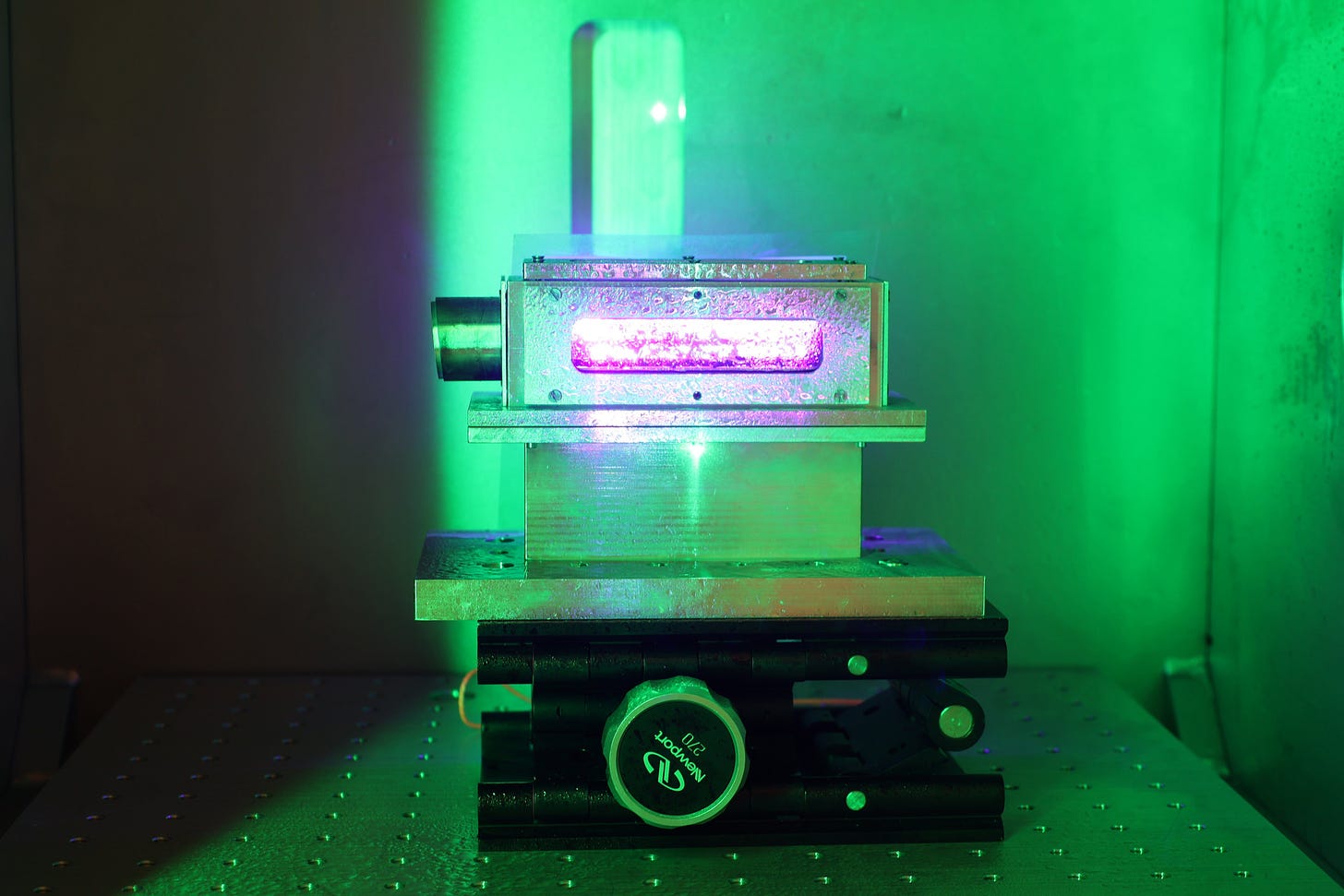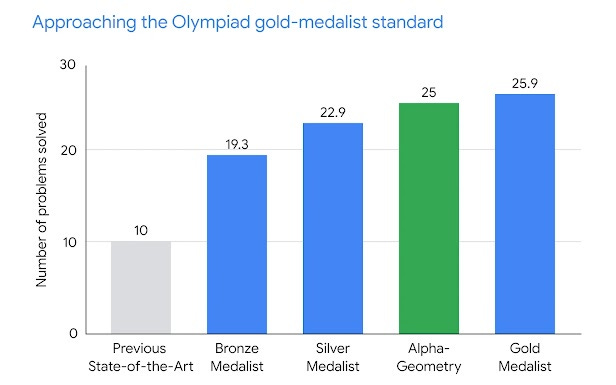

Weekly Dose of Optimism #77
source link: https://www.notboring.co/p/weekly-dose-of-optimism-77
Go to the source link to view the article. You can view the picture content, updated content and better typesetting reading experience. If the link is broken, please click the button below to view the snapshot at that time.

Weekly Dose of Optimism #77
Milei, Ultrasound, Micro-supercolliders, Optimus Folds, Alpha Geometry
Hi friends 👋,
Happy Friday and welcome back to our 77th Weekly Dose of Optimism. It generally takes us a few hours each week to find and curate the stories that we ultimately share in this newsletter. This week it took a fraction of the time — and a portion of that time was deciding which stories we should cut. The pace at which things are progressing is mind-bending. And global leaders are trying to keep up.
We’ll do our part in making sure you can keep up.
Let’s get to it.
This Weekly Dose is brought to you by … Percent
New year, new investment strategies
Is making smarter investments one of your New Year’s resolutions? Well, this year there’s more to explore than just stocks and bonds.
In a market heavily affected by inflation, a 60/40 portfolio isn’t providing the returns many investors need it to. Adding alternative investments like private credit can potentially provide better diversification and returns compared to traditional strategies alone.
Private credit, a $1.9 trillion industry, has historically only been available to institutional investors, but with Percent, accredited investors can access this alternative too.
On the only platform exclusively dedicated to private credit, accredited investors can:
Invest as little as $500 and obtain yields up to 20% APY
Access a wide variety of short term offerings, some that even have liquidity available after one month
Opportunities to diversify portfolios, with small business loans, merchant cash advances, trade finance, consumer loans, and more across the U.S., Canada, and Latin America
Earn a bonus of up to $500 on their first investment
Invest in Private Credit Today
(1) Milei’s 2024 Davos Talk
Argentinian President Javier Milei took the stage at Davos on Wednesday and delivered one of the clearest, most compelling articulations of free market libertarianism that I’ve ever come across. Marc Andreessen described it as the “speech of the 21st century” on X. Elon posted this (nsfw).
We’ve all heard some form of Milei’s core argument before — collectivism has never worked and free market capitalism unleashes prosperity — but Milei delivers it with the data-driven accuracy of a tenured economics professor and the gravitas of a sitting president whose country has had to learn that core lesson the hard way.
Milei invites other Western nations to drop their focus on distracting social and cultural issues and to re-focus on economic freedom, limited government, and property rights — the driving forces that have brought us the last 150 years of unprecedented economic growth and progress. The type of progress that brought us tools like heygen, the AI-product used in the video above that makes you forget that the speech was actually delivered in Spanish and not English.
Milei is optimistic about the future because of this type of progress — things are getting better and exponentially so — but he pleads with the West to not crush this progress with empirically bad economic and political experiments. Based Milei.
(As an aside, imagine Trump or Biden giving this speech. You can’t.)
(2) Neurosurgeon pioneers Alzheimer's, addiction treatments using ultrasound
From 60 Minutes
American neurosurgeon Ali Rezai is pioneering ways to try to help people with drug addiction and with Alzheimer's disease. One experiment focuses beams of ultrasound on the brain.
Last week, we covered the use of ultrasound in the administration of Aduhelm, an Alzheimer’s drug. Just 2 days later, 60 Minutes dropped the segment above on the pioneering doctor behind the ultrasound treatment, covering not only its effectiveness in the treatment of Alzheimer’s but also in the treatment of addiction.
In the video — which you should watch if you haven’t — you’re introduced to a decades-long drug addict who is essentially cured with just one session of ultrasound treatment. It’s one of those “holy shit” moments.
Ultrasound has been around for 70 years, giving doctors of a view of organ and fetal developments. Importantly, for the treatment of various brain diseases, ultrasound can easily penetrate the skull and can be targeted on very specific areas. Dr. Rezai is currently focusing the application of his research on treating Alzheimer’s and drug addiction, but believes the underlying methodologies could be used to treat a whole slew of other brain diseases and ailments, like PTSD.
For those keeping count at home, over the past year researchers have come out with safe and effective treatments for obesity and addiction.
(3) Micro-Supercolliders Scale Out for 3D Chip Scanning
Charles Q. Choi for IEEE Spectrum (h/t Andrew Côté)
What is this, a micro-supercollider for ants? Researchers have developed a compact wakefield laser accelerator that is just 10 centimeters long, capable of delivering 10 billion electron-volt (GeV) electron beams. This development significantly miniaturizes the technology compared to traditional 3-kilometer-long accelerators.
The micro-supercollider utilizes a petawatt laser pulse (a petawatt is several hundred times more than the world's current electricity production capacity) and nanoparticles to increase the efficiency of electron acceleration. It has potential use-cases in cancer therapies, radiation, and chip design. The big application would be to develop “X-ray free electron lasers” which would enable cutting-edge research for new batteries, solar cells, designer pharmaceuticals, vaccines, drugs, and basically everything else write about here at Not Boring.
There are some challenges — researchers are only getting a few shots of the supercollider per day now, but hope to scale up the shot rate to go from 1 per hour, to 100 per second, and ultimately 10,000 per second, allowing higher electron energies with a given laser. Dr. Evil would be proud.
(4) Optimus Folds
This is our third week in a row of sharing a video of a robot performing a basic household task like cooking shrimp or making coffee. In this week’s edition of robots doing seemingly simple things, we’re sharing Tesla’s Optimus robot folding laundry. This video is notable for a couple of reasons:
Tesla: The market for humanoids is potentially 10-100x the size of the car market. A sufficiently advanced humanoid will be able to do anything that we fleshhumans to do today. And Tesla is, if we are to take these “simple task” videos as an indication, in the lead with Optimus.
Fingers: AI and robots have a notoriously hard time with fingers and folding laundry is about as fingery of a task as there is. To complete the task, Optimus has to understand the shape, size, and orientation of the item it's folding — plus, the moment the robot picks up the item, it deforms. Optimus has a breakthrough level of dexterity.
It’s important to note that, unlike the Figure video we shared, this robot is teleoperated - there’s a human controlling it instead of the robot learning from watching shirt-folding videos. But it’ll learn. At the rate we’re going, we’ll all have our own smart Rosey in no time.
(5) AlphaGeometry: An Olympiad-level AI system for geometry
Trieu Trinh and Thang Luong of DeepMind
Google DeepMind’s AlphaGeometry successfully solved 25 out of 30 International Mathematical Olympiad geometry problems, notching a performance that is comparable to human gold medalists and surpasses the previous top performing AI. Surprisingly, the LLMs that we’ve all come to know and love are pretty bad at math because they they rely on pattern recognition from text rather than logical or numerical computation. AlphaGeometry combines the predictive power of LLMs with a rule-bound deduction engine, which work in tandem to be about as good as math as the best human mathletes.
Having AI that is good at math means that we can have AI that can contribute more to physics and engineering, and also means we’ll have AI that can take on more of the human-level tasks that require that beautiful combination of predictive art and logic-bound science.
Soon we’ll have math genius humanoids folding our laundry. I think that’s the type of techno-optimistic future Milei can get behind.
That’s all for this week. If you have some time this weekend, check out Percent.
We’ll be back in your inbox on Tuesday.
Thanks for reading,
Dan + Packy
Recommend
About Joyk
Aggregate valuable and interesting links.
Joyk means Joy of geeK



